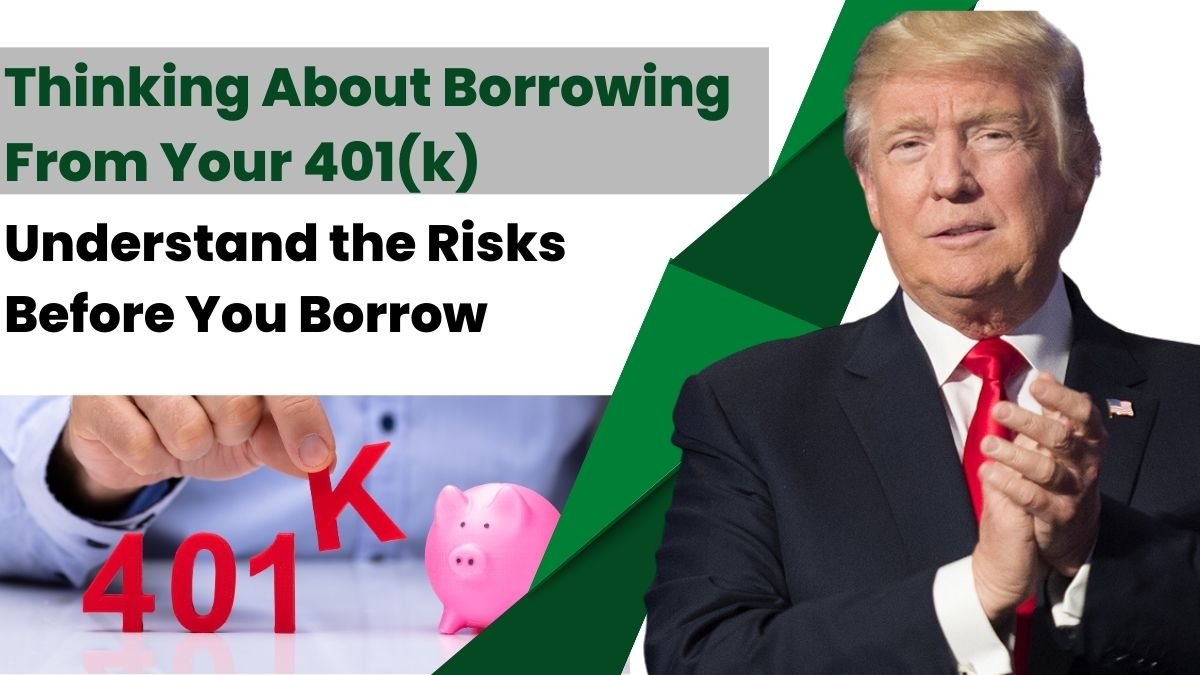Consider the risks Before borrowing from your 401(k), like early withdrawal penalties and lost retirement growth. While it may seem convenient, alternatives like personal loans or credit cards with 0% rates might be safer. Consult a financial advisor to make the best decision for your future.
The Good Side of a 401(k) Loan
One of the biggest advantages of a 401(k) loan is that your credit score doesn’t matter. Even if your credit isn’t great, you can still borrow from your 401(k) if your plan allows it. Plus, the interest you pay goes back into your account, not to a bank. This makes it a convenient option for many people.
If you’re wondering how long it takes to withdraw from a 401(k), it usually depends on your plan’s rules and the reason for the withdrawal. Some withdrawals can take a few days, while others might take weeks
The Risks of Borrowing From Your 401(k)
The biggest risk is not being able to pay back the loan on time. If that happens, the loan could be treated as a withdrawal. If you’re under 59½, you’ll face a 10% early withdrawal penalty, plus taxes on the amount you borrowed.
Another thing to keep in mind is what happens if you leave your job. If you quit or get laid off, you might have only 60 days to pay back the loan in full. If you can’t, it will be treated as a withdrawal, and you’ll face those penalties and taxes.
Quick Comparison: 401(k) Loan vs. Other Options
| Option | Pros | Cons |
| 401(k) Loan | No credit check, interest goes back to you | Risk of penalties, taxes, and lost growth |
| Credit Card | 0% introductory rates available | High interest after intro period |
| Personal Loan | Fixed payments, predictable interest | Requires good credit for best rates |
| Home Equity Loan/HELOC | Lower interest rates, flexible borrowing | Risk of losing your home if you default |
Other Options to Consider
Before you decide to borrow from your 401(k), think about other ways to get the money you need. For example, you could use a credit card with a 0% introductory rate or take out a personal loan. If you own a home, you might also consider a home equity loan or a home equity line of credit (HELOC).
Also, keep an eye on IRS changes in 2025 for 401(k) plans. These changes could affect how much you can contribute or the rules around loans and withdrawals. Staying informed can help you make better decisions about your retirement savings.
FAQs
1. Can I borrow from my 401(k) if I have bad credit?
Yes, you can. Your credit score doesn’t affect your ability to take a 401(k) loan since you’re borrowing from yourself.
2. What happens if I can’t pay back my 401(k) loan?
If you don’t repay the loan on time, it will be treated as a withdrawal. This means you’ll face a 10% penalty if you’re under 59½, plus taxes on the amount.
3. Can I still contribute to my 401(k) while paying off a loan?
Some plans may stop you from making contributions until the loan is paid off. This could mean missing out on tax benefits during that time.
4. What are some alternatives of Borrowing From Your 401(k)?
You could use a credit card, take out a personal loan, or tap into your home equity with a home equity loan or HELOC.
